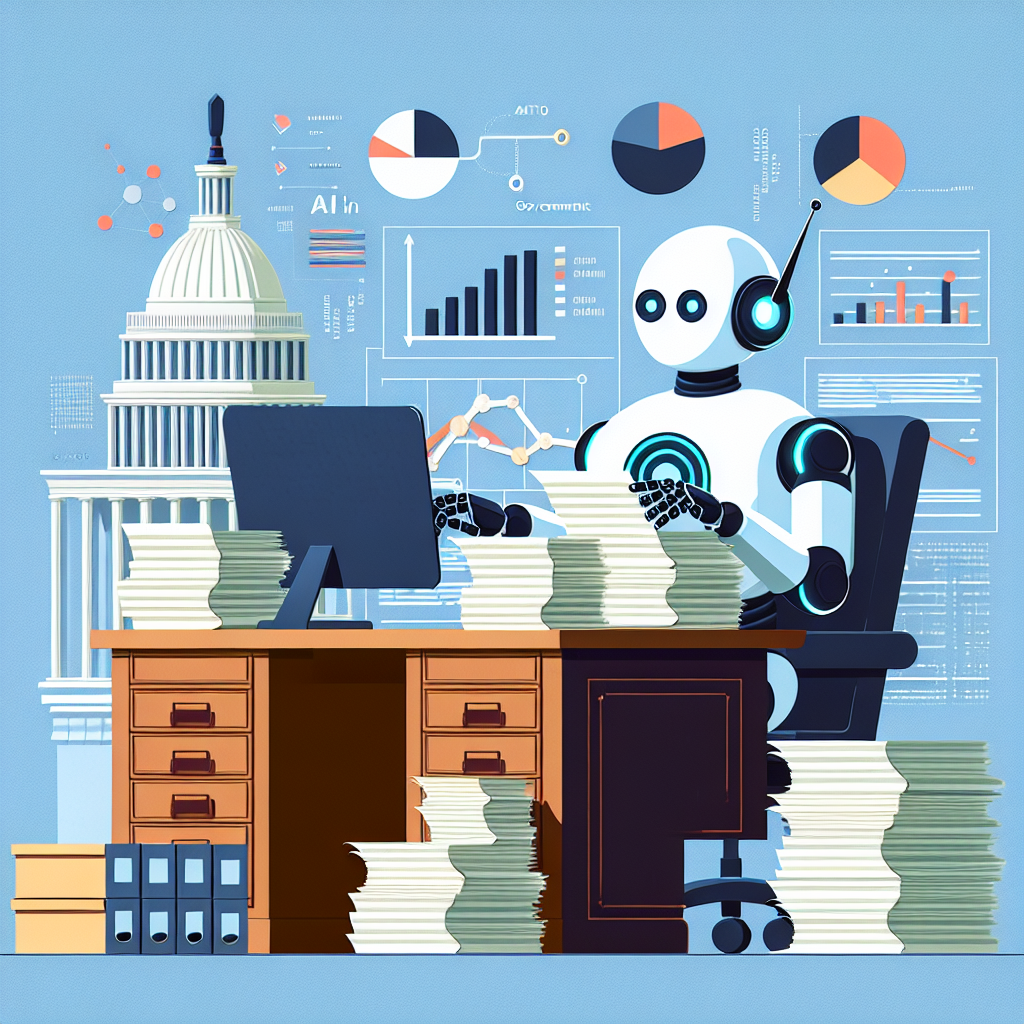Implementing AI in Government Procurement Processes
Introduction
Government procurement processes are often complex and time-consuming, involving a lot of manual work and paperwork. The use of artificial intelligence (AI) has the potential to streamline these processes, making them more efficient and cost-effective. AI can help governments make better decisions, reduce errors, and improve transparency in the procurement process. In this article, we will explore the benefits of implementing AI in government procurement processes and discuss some of the challenges and considerations that need to be taken into account.
Benefits of AI in Government Procurement Processes
1. Improved Efficiency: AI can automate repetitive tasks, such as data entry and document processing, saving time and resources. This allows procurement officers to focus on more strategic tasks, such as contract negotiation and supplier management.
2. Cost Savings: By reducing manual work and errors, AI can help governments save money on procurement processes. AI can also analyze data to identify cost-saving opportunities, such as bulk purchasing or renegotiating contracts with suppliers.
3. Better Decision-Making: AI can analyze large amounts of data to identify patterns and trends, helping procurement officers make more informed decisions. For example, AI can analyze supplier performance data to identify high-performing vendors or potential risks.
4. Increased Transparency: AI can help improve transparency in government procurement processes by tracking and documenting every step of the process. This can help prevent fraud and corruption, as well as increase public trust in the government’s procurement practices.
Challenges and Considerations
1. Data Security and Privacy: Governments need to ensure that sensitive procurement data is protected from unauthorized access or misuse. AI systems must comply with data protection regulations and security standards to safeguard confidential information.
2. Bias and Fairness: AI systems can inadvertently perpetuate biases in the procurement process, such as favoring certain suppliers or overlooking qualified vendors. Governments need to carefully design and monitor AI systems to ensure fairness and equal opportunity for all suppliers.
3. Training and Skills: Government procurement officers may need training to understand how to use AI tools effectively. Governments should invest in training programs to ensure that staff have the necessary skills to leverage AI in procurement processes.
4. Integration with Existing Systems: AI systems need to be integrated with existing procurement systems and processes to ensure seamless operation. Governments should carefully plan and test the integration of AI tools to avoid disruptions in the procurement process.
FAQs
Q: How can AI help governments reduce procurement costs?
A: AI can help governments reduce procurement costs by automating repetitive tasks, identifying cost-saving opportunities, and analyzing supplier performance data to negotiate better contracts.
Q: How can AI improve transparency in government procurement processes?
A: AI can improve transparency in government procurement processes by tracking and documenting every step of the process, identifying potential risks or fraud, and increasing public trust in the government’s procurement practices.
Q: What are some potential challenges of implementing AI in government procurement processes?
A: Some potential challenges of implementing AI in government procurement processes include data security and privacy concerns, bias and fairness issues, training and skills requirements, and integration with existing systems.
Q: How can governments ensure that AI systems are fair and unbiased in the procurement process?
A: Governments can ensure that AI systems are fair and unbiased in the procurement process by carefully designing and monitoring the AI tools, training staff on the use of AI, and implementing safeguards to prevent bias and discrimination.
Conclusion
Implementing AI in government procurement processes can bring significant benefits, such as improved efficiency, cost savings, better decision-making, and increased transparency. However, governments need to address challenges such as data security, bias, training, and integration to ensure the successful implementation of AI tools. By carefully planning and monitoring the use of AI in procurement processes, governments can harness the power of AI to make procurement processes more efficient and effective.

